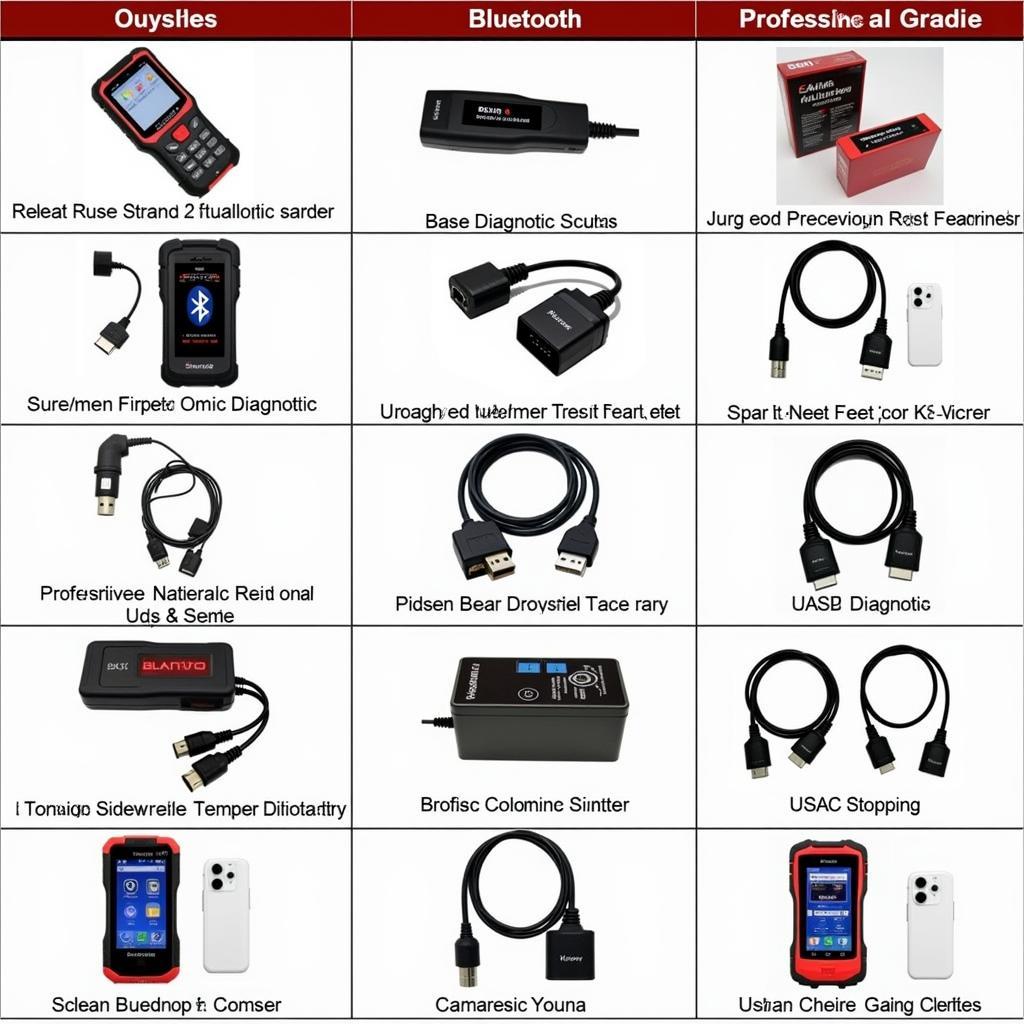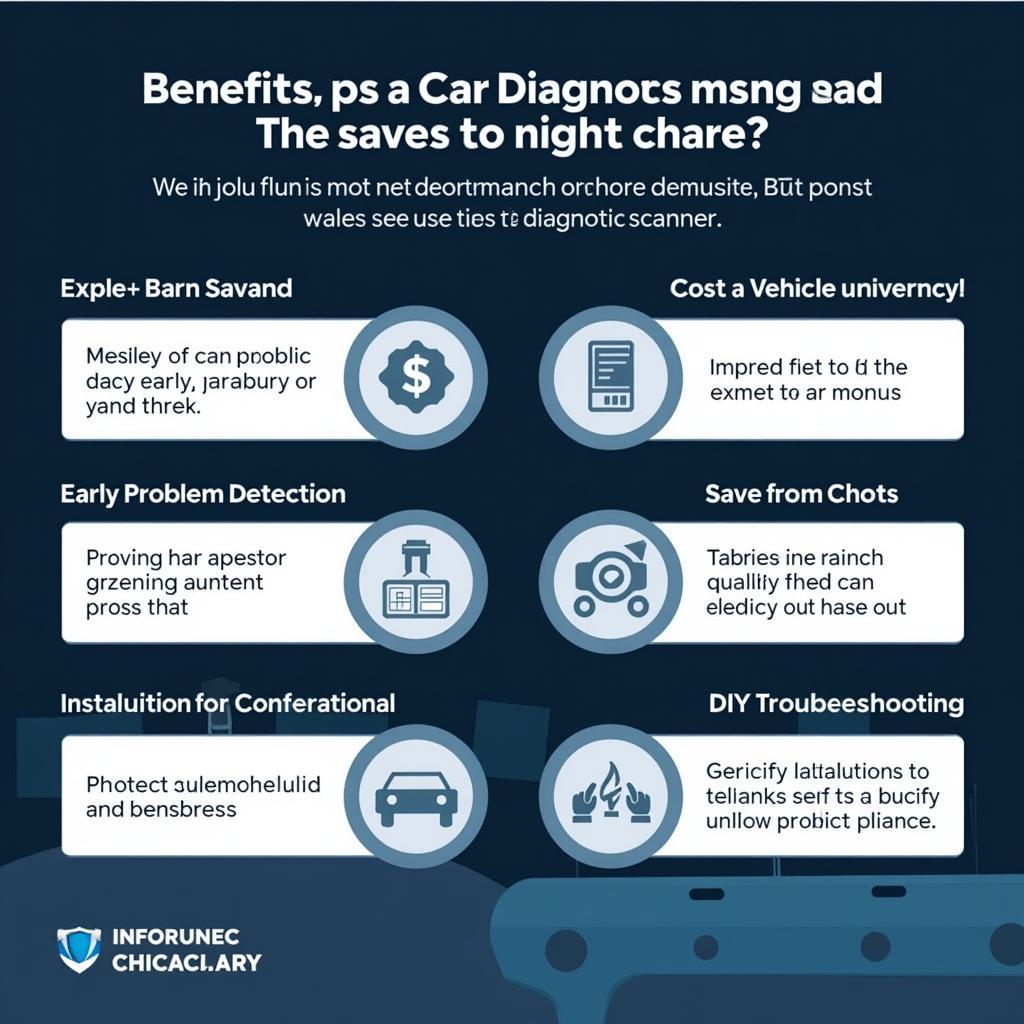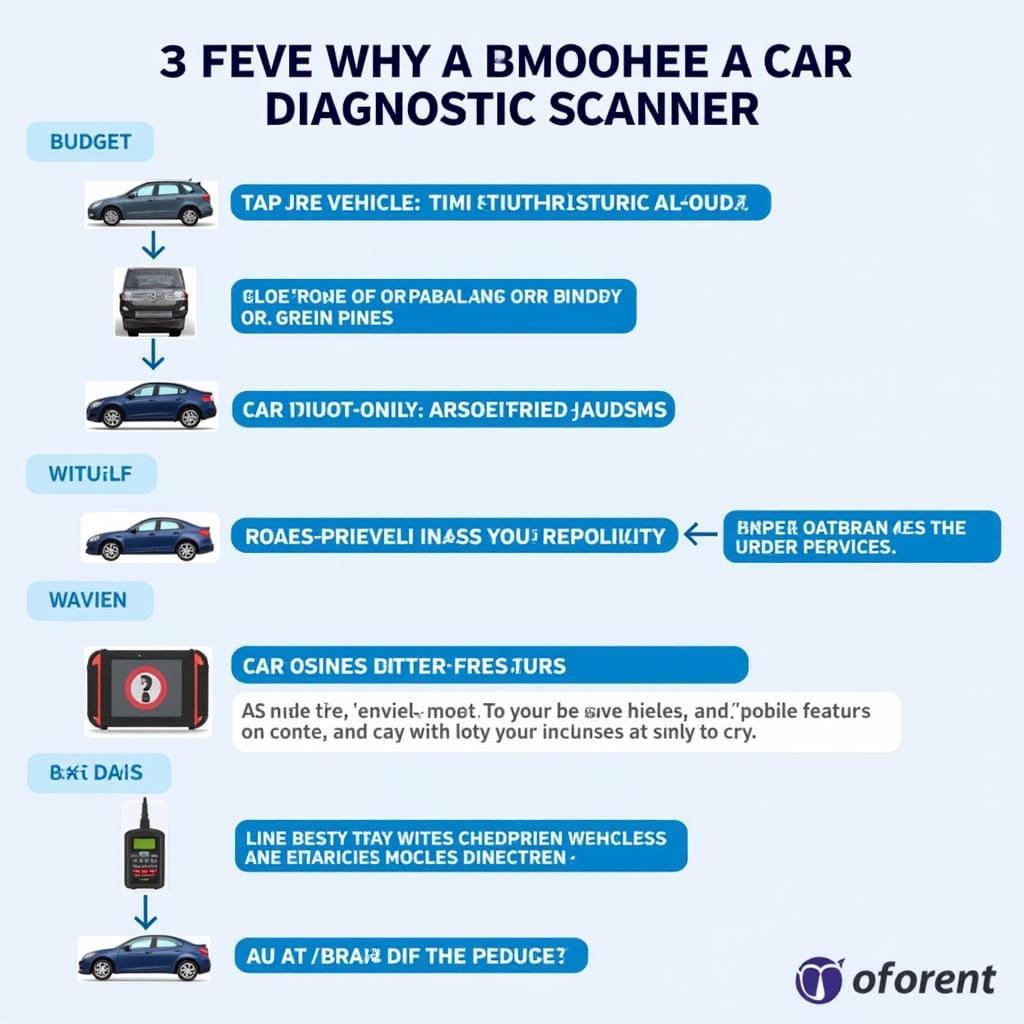Finding the right car diagnostic scanner can feel like navigating a maze of technical jargon and confusing features. Whether you’re a seasoned mechanic or a car enthusiast looking to troubleshoot your own vehicle, understanding what to look for in an “All Car Diagnostic Scanner” is essential. This comprehensive guide will equip you with the knowledge to make an informed decision and choose the best scanner for your needs.
 Types of All Car Diagnostic Scanners
Types of All Car Diagnostic Scanners
Understanding Car Diagnostic Scanners: What You Need to Know
Before diving into the specifics, let’s clarify what an “all car diagnostic scanner” actually is. This term generally refers to OBD2 scanners, devices designed to communicate with your vehicle’s onboard computer and retrieve diagnostic information. This information can range from simple engine fault codes to more detailed data about your car’s performance.
Why You Need an All Car Diagnostic Scanner
Imagine this: your check engine light flashes on. Instead of rushing to a mechanic and potentially facing hefty diagnostic fees, an all car diagnostic scanner empowers you to identify the issue yourself. This not only saves you money but also gives you greater control over your vehicle’s maintenance.
 Benefits of Using a Car Diagnostic Scanner
Benefits of Using a Car Diagnostic Scanner
But the benefits extend beyond simply reading fault codes. Here are some compelling reasons why owning an all car diagnostic scanner is a smart investment:
- Cost Savings: As mentioned, diagnosing problems yourself can significantly reduce mechanic bills.
- Early Detection: Identify minor issues before they escalate into costly repairs.
- Improved Performance: Monitor critical vehicle parameters and ensure optimal engine performance.
- DIY Empowerment: Take control of your car’s maintenance and repairs.
- Transparency: Understand the true health of your vehicle, especially when buying a used car.
Types of All Car Diagnostic Scanners: Finding Your Perfect Match
The market offers a wide array of all car diagnostic scanners, each catering to different needs and budgets. Choosing the right one requires understanding the different types available:
1. Basic OBD2 Scanners:
These entry-level scanners are ideal for casual users who want to read and clear basic engine fault codes. They are usually the most affordable option and offer a straightforward way to understand why your check engine light is on.
2. Bluetooth OBD2 Scanners:
For a more tech-savvy approach, Bluetooth scanners connect to your smartphone or tablet, providing a user-friendly interface and often more advanced features. These scanners often come with mobile apps that offer live data monitoring, graphing capabilities, and even access to manufacturer-specific codes.
3. Professional-Grade Scanners:
As the name suggests, these scanners are geared towards mechanics and professional workshops. They offer the most comprehensive diagnostic capabilities, including access to all vehicle systems, bi-directional control (allowing you to test components), and advanced programming functions.
 Factors to Consider When Choosing an All Car Diagnostic Scanner
Factors to Consider When Choosing an All Car Diagnostic Scanner
Key Features to Consider
With so many options available, it’s important to focus on the features that matter most to you:
- Vehicle Compatibility: Ensure the scanner supports your car’s make, model, and year.
- Code Reading & Clearing: The scanner should be able to read and clear both generic and manufacturer-specific codes.
- Live Data Streaming: Access real-time data from various sensors to analyze performance.
- Graphing & Recording: Some scanners allow you to graph data for easier analysis and trend identification.
- Additional Features: Consider features like ABS bleeding, airbag reset, and other specialized functions depending on your needs.
Making the Right Choice: Tips from a Car Diagnostic Expert
“Investing in a quality car diagnostic scanner is like having a personal mechanic on hand,” says [Name Surname], a seasoned automotive engineer with over 20 years of experience. “It empowers you to take control of your vehicle’s maintenance and understand its health in a way that was previously impossible for the average car owner.”
When making your final decision, consider your budget, technical expertise, and the features that align with your diagnostic needs. Remember, a well-chosen car diagnostic scanner can save you significant time, money, and headaches in the long run.

Leave a Reply